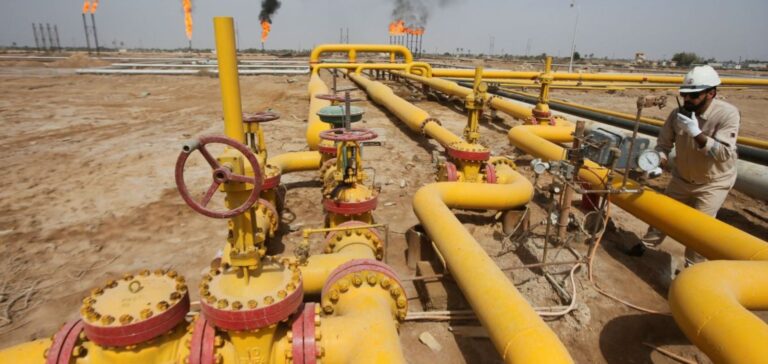Iraq is still waiting for a response from Turkey before it can resume its oil exports from Kurdistan, the authorities of the autonomous region said on Friday, the day after Baghdad announced that it would resume these operations, which have been suspended since the end of March.
After years of going it alone in exporting oil via Turkey, Iraqi Kurdistan was forced at the end of March to comply with a decision by the arbitration tribunal of the International Chamber of Commerce in Paris in favour of the Baghdad government regarding the management of this oil.
Suspension of exports since the end of March
This verdict led to a suspension of exports since the end of March. It also forced Erbil, capital of autonomous Kurdistan in northern Iraq, to negotiate with the federal government in Baghdad. An agreement was reached between the two sides to coordinate their action, and late Thursday night, Iraqi Oil Minister Hayan Abdel-Ghani announced a resumption of exports as of Saturday, May 13.
On Friday, however, Natural Resources Minister Kamal Mohamed tempered this optimism on a local Kurdish television station. “We are waiting for a decision from Turkey on the day of resumption of exports,” qualified the minister interviewed by Rudaw channel. He assured that he had learned from his counterpart in Baghdad that Iraq “is ready to resume exports. “Turkey must now inform the Iraqi side of the date of resumption of operations,” he insisted. “The Iraqi side sent an official letter (Wednesday) and we are still waiting for their response,” Mohamed stressed.
The agreement reached between Baghdad and Erbil stipulates that Kurdistan’s sales will now go through the State Oil Company (Somo) and that revenues from Kurdish exports will go into a joint bank account. It also ratifies the end of the independence of autonomous Kurdistan on the issue of hydrocarbons: for nearly a decade the black gold represented the economic lung of the region, with 475,000 barrels exported daily via Turkey, without the approval of Baghdad. And for a long time these exports have been a source of tension with the federal government. The suspension of exports for more than a month represents a loss of revenue of about “a billion dollars”, explained to AFP the analyst Kovand Shirwani.






















